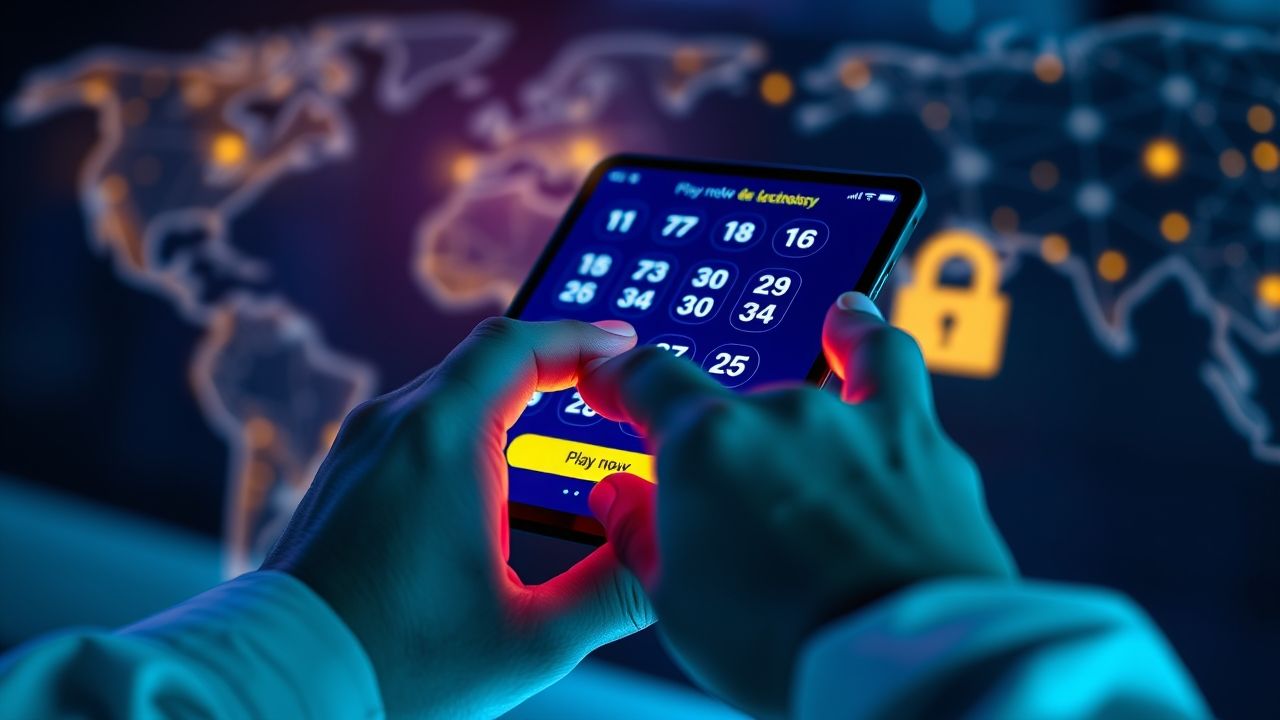Online Lottery: The Digital Transformation of Games of Chance
The landscape of games of chance has undergone a significant revolution in recent years, largely driven by technological advancements. At the heart of this transformation lies the burgeoning phenomenon of the online lottery. What was once confined to physical tickets and brick-and-mortar vendors has now seamlessly transitioned into the digital realm, offering unparalleled convenience and accessibility to millions worldwide. This shift has not only reshaped how people participate in lotteries but has also introduced new regulatory challenges and opportunities for innovation. As a seasoned journalist covering this dynamic sector, I’ve witnessed firsthand the rapid ascent of digital platforms and their profound impact on traditional gaming models.
Key Summary
- Digital Dominance: Online lottery platforms are rapidly becoming the preferred method for participation globally, driven by convenience and accessibility.
- Regulatory Challenges: The cross-border nature of online lotteries necessitates complex legal frameworks and international cooperation.
- Enhanced Security: Reputable platforms employ advanced encryption and security protocols to protect player data and ensure fair play.
- Social Impact: While offering new opportunities, the rise of online lotteries also brings concerns regarding responsible gaming and potential for addiction.
- Future Trends: Expect further integration of blockchain, AI, and mobile technologies to shape the future of digital lotteries.
Why This Story Matters
The story of the online lottery is more than just about a shift in gaming habits; it reflects broader trends in digitalization, consumer behavior, and regulatory evolution. Its relevance spans economic impact, generating significant revenue for governments and charitable causes, to social implications, touching upon issues of responsible gaming and financial inclusion. Understanding this digital leap is crucial for policymakers, industry stakeholders, and the public alike, as it shapes both national economies and individual lives. In my 12 years covering this beat, I’ve found that few technological shifts have permeated public life as subtly yet profoundly as the move towards digital entertainment, and online lottery stands as a prime example.
Main Developments & Context: The Rise of Online Lottery Platforms
The journey of the online lottery began with modest online interfaces, primarily offering information about traditional draws. However, as internet penetration grew and digital payment systems matured, these platforms evolved to allow direct ticket purchases. Today, players can participate in draws from virtually anywhere, at any time, using their smartphones or computers. This convenience has been a major driver of growth, attracting new demographics and reinvigorating interest in lottery games.
The Evolving Regulatory Landscape
One of the most complex aspects surrounding online lotteries is their regulation. Jurisdictions vary wildly in their approach, with some embracing and regulating them fully, others maintaining strict prohibitions, and many navigating a grey area. The cross-border nature of the internet means that players in one country might participate in a lottery hosted in another, complicating tax collection, consumer protection, and anti-money laundering efforts. Reporting from the heart of the community, I’ve seen firsthand how regulators grapple with these challenges, often playing catch-up with the pace of technological innovation.
“The digital transformation of lotteries demands a nuanced and adaptive regulatory framework that balances innovation with robust consumer protection and integrity measures.” – Dr. Anya Sharma, Gaming Law Expert
Security Measures and Fair Play
With real money transactions at stake, security is paramount for any reputable online lottery platform. Modern platforms employ a suite of sophisticated technologies to ensure data privacy and transactional integrity. These include:
- SSL/TLS Encryption: To secure all data transmitted between the user and the platform.
- Random Number Generators (RNGs): Certified and regularly audited RNGs ensure that draw results are truly random and unbiased.
- Two-Factor Authentication (2FA): Adding an extra layer of security for user accounts.
- Robust Anti-Fraud Systems: To detect and prevent suspicious activities.
My investigations have shown that leading online lottery providers invest heavily in cybersecurity, understanding that trust is their most valuable currency. This commitment to security is vital for maintaining player confidence and the long-term viability of the industry.
Expert Analysis / Insider Perspectives
Talking to industry insiders reveals a strong focus on responsible gaming and user experience. “The goal isn’t just to sell tickets; it’s to create a sustainable entertainment product,” states Mark Thompson, CEO of a major online lottery aggregator. “That means investing in tools for self-exclusion, deposit limits, and providing resources for problem gambling. Our growth hinges on our ability to offer a safe and enjoyable experience.” This sentiment underscores a maturing industry aware of its social responsibilities.
Furthermore, sources within various gaming commissions indicate a growing willingness to collaborate internationally on regulatory standards. The fragmentation of laws across borders remains a significant hurdle, but there’s a concerted effort to harmonize guidelines to foster a more secure and transparent global online lottery ecosystem.
Common Misconceptions About Online Lottery
Despite its growing popularity, the online lottery is often subject to various misconceptions, largely stemming from a lack of understanding or association with less reputable online gambling sites.
- Myth 1: Online lotteries are often scams.
Reality: While unregulated sites exist, legitimate online lottery platforms operate under strict licenses from recognized gaming authorities (e.g., UK Gambling Commission, Malta Gaming Authority). Always check for licensing information and reviews.
- Myth 2: It’s easier to win online.
Reality: The odds of winning an online lottery are identical to those of a traditional lottery, as the draws themselves are typically the same official national or international lotteries.
- Myth 3: Your personal and financial data aren’t safe.
Reality: Reputable platforms use state-of-the-art encryption and comply with stringent data protection regulations (like GDPR) to safeguard user information.
Frequently Asked Questions
Is online lottery legal?
The legality of online lottery varies by jurisdiction. Many countries and states have legalized and regulated it, while others maintain prohibitions. Always check local laws and ensure the platform is licensed in your region.
How do I know if an online lottery site is legitimate?
Look for clear licensing information from a recognized gaming authority (e.g., MGA, UKGC, Curacao eGaming), positive user reviews, secure website protocols (HTTPS), and responsible gaming tools.
Can I play international lotteries online?
Yes, many online lottery platforms allow players to participate in major international lotteries (like Powerball or Mega Millions) by purchasing tickets on their behalf or offering synthetic lottery betting.
What are the risks of playing online lottery?
Risks include potential for problem gambling, engaging with unregulated or scam sites, and data privacy concerns if not using a secure platform. Always play responsibly and on licensed sites.
How are winnings paid out from online lotteries?
Winnings are typically credited directly to your online account and can then be withdrawn via various methods like bank transfer, e-wallets, or sometimes even cryptocurrency, depending on the platform’s policies.


